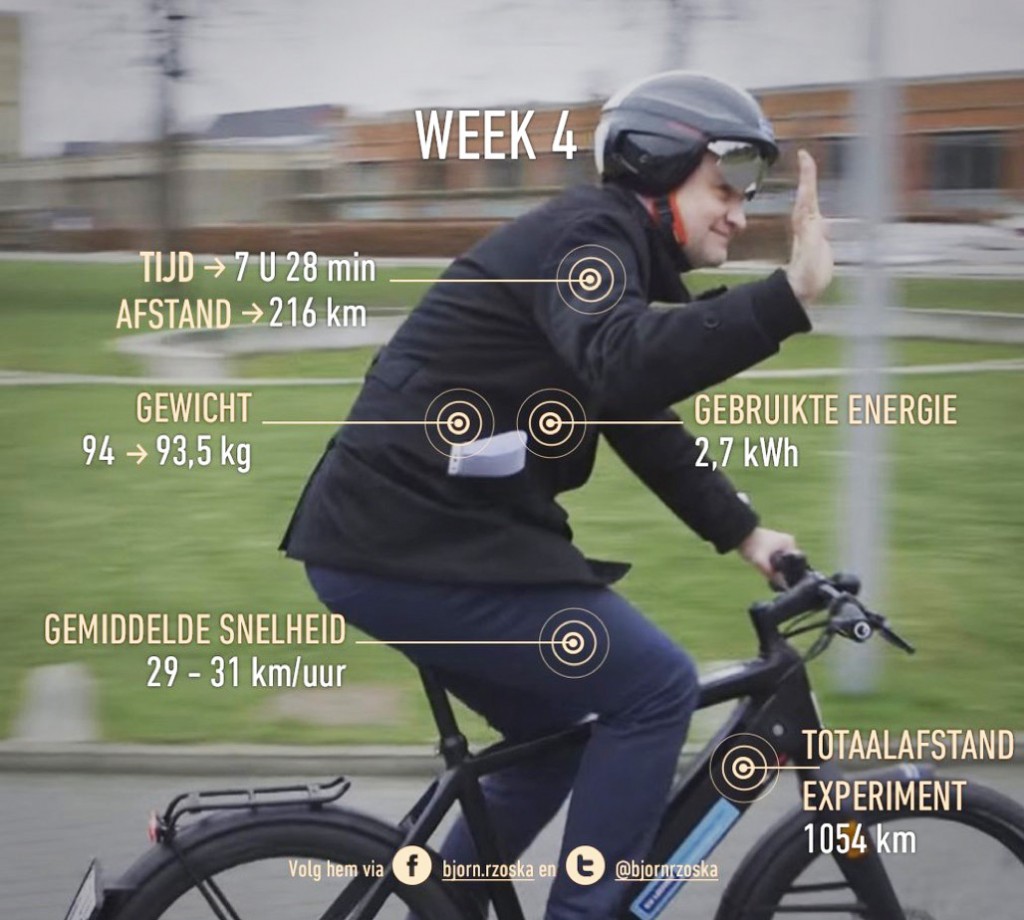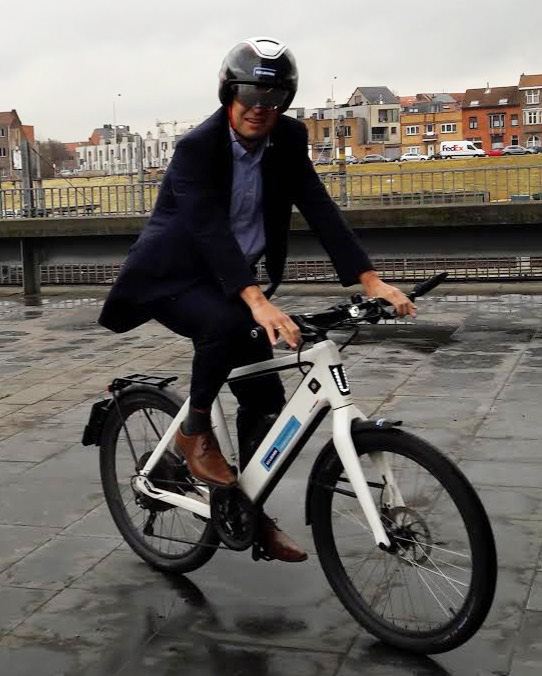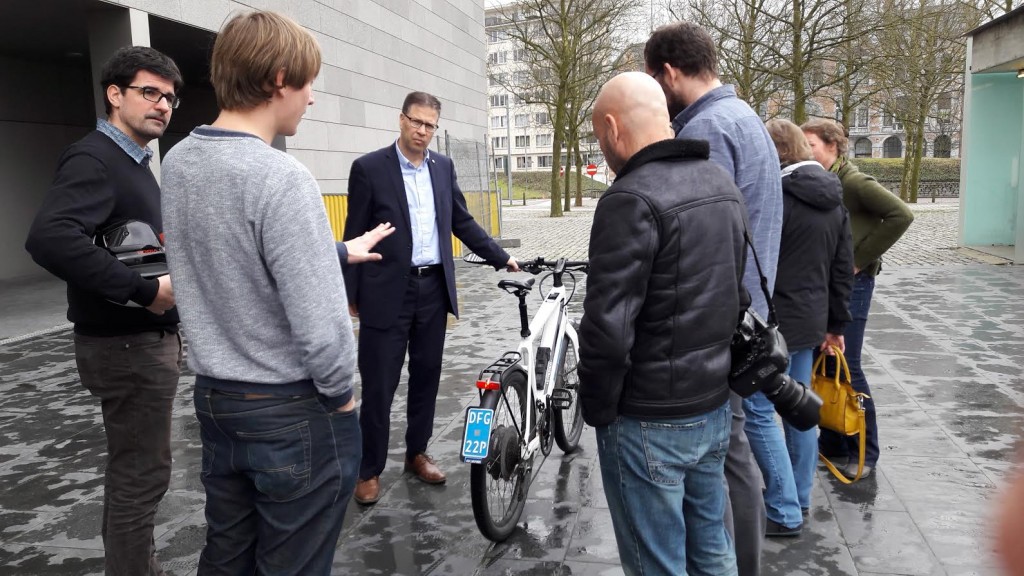As Belgian politician, Bjorn Rzoska, finished his fourth week of commuting 7.5 hours by speed pedelec to statistically build the case for faster e-bikes, new participants have joined the commuter experiment.

Initial data from Mr Rzoska’s study so far showed he has covered 1,054km at an average speed of 30 km/hr, losing half a kilo in weight in the process.
Following Mr Rzoska’s lead is Tom Dehaene, who is responsible for mobility in the Belgian province of Vlaams Brabant; Mr Dehaene commenced his commuter study on 8th March.
Remarking on his first trip, he said: “What an experience. 44 minutes from Zemst to Leuven. Faster than by car”. Yesterday he tweeted he had already reduced that time down to a ‘new personal best’ of 38 minutes while showing his followers a peaceful but misty sunrise over the riverside cycle path he was enjoying on his way to work.
Mr Dehaene said: “We would like more people on bikes commuting in our province. This research is important to determine whether a fast electric bicycle is user-friendly and whether it can convince people to swap their car for a bike. We have a number of cycle highways in our province. Research has shown that the average commuter distance on these highways is just under 20 km.”
Other employees from the Vlaams Brabant province are also taking part in the experiment. The study has emerged on the back of the growing popularity of faster e-bikes on Belgian roads, alongside upcoming revisions to the Belgian traffic code which determines road usage laws for speed pedelecs.
AVERE, the European Association for Electromobility, is the organisation working alongside the research group. Annick Roetynck told Pedelecs: “Earlier research has shown that commuters tend to use conventional bikes for one-way trips up to 7 km and 25 km/h pedelecs for up to 15 km. Consequently, faster e-bikes appear to be an ideal solution for longer trips. The test in Vlaams Brabant will run for 3 weeks.”



